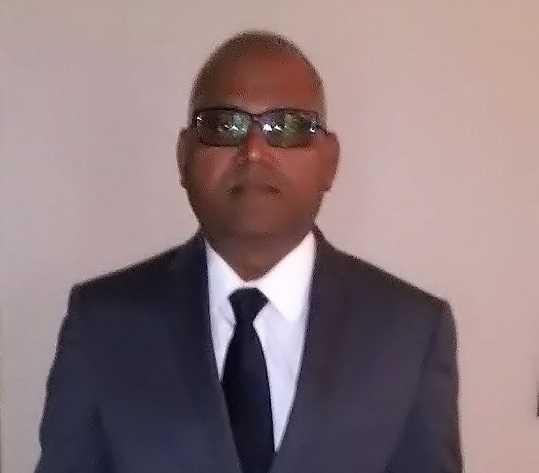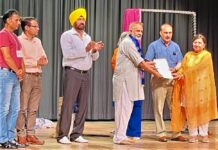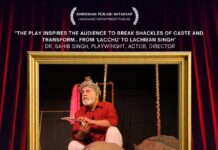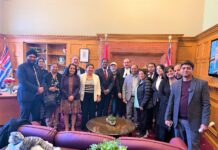BY JAI BIRDI
General Secretary
Chetna Association of Canada
ON behalf of the Chetna Association of Canada, it is my pleasure to extend greetings on the 74th Constitution Day of India.
Seventy-three years ago on this day, the Constitution was adopted in India. It was implemented on January 26, 1950.
The task of creating a framework that sustains democracy through unity, integrity, justice, equality, liberty, and fraternity for a nation with many cultural, linguistic, and religious diversity was not an easy task. My thanks to the drafting committee and its chairperson, Baba Saheb Dr. Ambedkar, for producing a document that kept the interests of a “common man” at the core of their heart when resolutions were being discussed and debated. In this spirt, I see and honor Baba Saheb Dr. Ambedkar as the pioneer in social engineering.
Baba Saheb Dr. Ambedkar’s passion for emancipation (political, social, and economic) comes out clearly when one reads Articles 14 through 18 on equality.
In terms of gender equality and other measures of social engineering, these and other articles have been tested and challenged many times since the Constitution was implemented.
It is reassuring to learn that the spirit of democracy that lives through the Constitution has survived these challenges.
The Constitution has proven to be flexible, workable, and amendable to address emerging challenges and leverage newer opportunities.
For example, around 2016 when issues related to transgender were being hotly debated in the public domain, the Government of India was able to work within the Constitutional Framework and pass a new legislation in 2019, “The Transgender Person (Protection of Right) Act.
Ability to leverage the Constitution even after seventy years since The Constitution was adopted, and pass a legislation to address the emerging need, is perhaps another testimony to the far-sightedness of Baba Saheb Dr. Ambedkar. Perhaps, this is another great reason why Baba Saheb Dr. Ambedkar is, rightfully so, being revered as the Father and Chief Architect of the Indian Constitution.
Baba Saheb Dr. Ambedkar’s famous quote, “I measure the progress of a community by the degree of progress which women have achieved”, is a classic benchmark that provides women the right to vote as soon as the Constitution was adopted in 1950. This action, and other measures of inclusion provided in the constitution, creates many opportunities for women, minorities, and the marginalized or weaker sectors, to be more included and integrated in the public domain.
I appreciate there are many challenges.
Concerns related to caste-based discrimination are continuing to surface in India.
With the growth of the Indian Diaspora, incidents of discrimination are also surfacing in Canada and other parts of the world.
At the same time, there are many newer opportunities to partner and collaborate to enhance inclusion globally. This awareness and willingness to collaborate for improving humanity are helping to respond and be proactive.
Observing or celebrating days such as Constitution Day give us the opportunity to reflect, rethink, and remind ourselves of the values the Fathers of The Constitution had in mind. Knowing and understanding these values will undoubtedly influence and shape our thinking to take actions that support unity, integrity, and inclusion. Constitution Day is also a wonderful opportunity for us to see if our path is right or not.
I am thankful to Mr. Manish ji, Consul General of India, for collaborating with Chetna Association of Canada and Shri Guru Ravidass Sabha to host presentations on the Constitution and instigate our collective thinking on this day.
I am also very grateful to many local individuals, academic institutions, media outlets, and community organizations, for becoming a partner in giving a stronger life and meaning to the ideals enshrined in the Constitution. These actions are helping to proactively address many of these challenges and reduce the impact.













